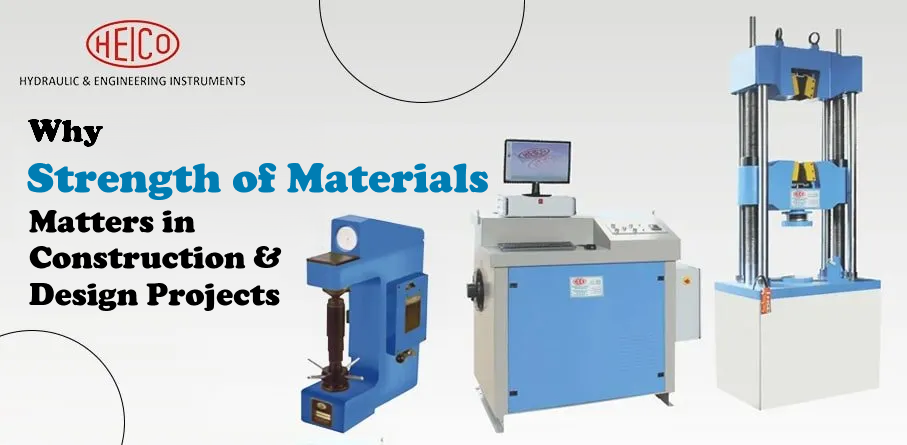In the world of construction and structural design, the strength of materials is not just a concept—it's a foundation for safety, durability, and performance. Whether you're building a residential home, a commercial complex, or a bridge, understanding material strength is essential to ensure the structure stands the test of time.

What Is the Strength of Materials?
Strength of materials refers to the ability of a material to withstand an applied load without failure or plastic deformation. It includes various mechanical properties such as tensile strength, compressive strength, shear strength, and flexural strength. Among these, compressive strength plays a critical role in evaluating building materials like concrete, bricks, and mortar.
Why Is It Important in Construction?
- Structural Integrity and Safety
Construction projects rely heavily on the strength of materials to prevent collapse and damage under pressure. Weak materials can lead to cracks, instability, and even total structural failure. Regular testing using a compression testing machine ensures materials meet safety standards before implementation. - Cost-Effectiveness
Selecting the right material strength prevents overuse of expensive resources. Overdesigning a structure can be as problematic as underdesigning. Proper strength analysis allows engineers to optimize material use, reduce waste, and control costs. - Long-Term Durability
A structure must endure various environmental stresses over time. Materials tested for compressive strength using a compressive strength tester are proven to withstand such pressures, ensuring long-lasting performance without early deterioration. - Regulatory Compliance
Building codes and standards require rigorous testing and documentation of material strength. Using certified compression testing machines helps meet legal and safety requirements, avoiding delays and liabilities in construction.
The Role of the Compressive Strength Tester in Quality Assurance
A compressive strength tester is a specialized tool used to measure the maximum compressive load a material can bear before failure. It plays a vital role in:
- Testing concrete cubes or cylinders for construction
- Verifying the load-bearing capacity of bricks and blocks
- Ensuring quality control in manufacturing units
By identifying weak materials early, these machines help prevent costly rework and structural risks.
How Compression Testing Machines Support Reliable Construction
Modern compression testing machines provide accurate, repeatable results for different materials under compressive stress. They are commonly used in:
- Civil engineering labs
- Material testing facilities
- Construction companies
- R&D departments of manufacturing firms
These machines are indispensable in ensuring that only the best materials make it to the building site.
Final Thoughts
The strength of materials is a cornerstone of every successful construction and design project. With tools like the compressive strength tester and compression testing machine, engineers and builders can ensure materials meet essential standards for strength, safety, and durability. Investing in proper testing not only guarantees a solid foundation but also contributes to the long-term success of any infrastructure project.
Looking for reliable compression testing equipment?
Explore industry-grade compression testing machines from trusted manufacturers to ensure your materials meet the highest performance standards.



0 Comments